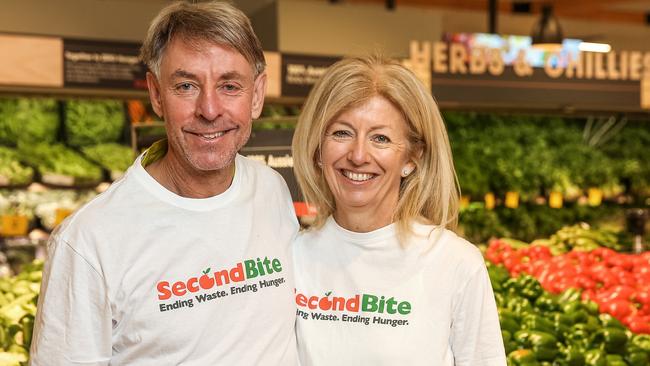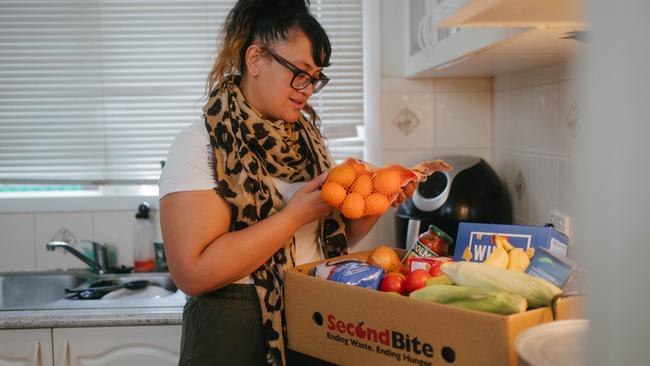Demand for rescued food ‘never been higher’ after perfect storm of cost-of-living pressures
SecondBite has more than doubled its delivery of rescued food across Australia over the past five years after a perfect storm of cost-of-living pressures.
Lifestyle
Don't miss out on the headlines from Lifestyle. Followed categories will be added to My News.
Demand for rescued food for struggling Australians has “never been higher”, new research shows, with the impacts of Covid, natural disasters and cost-of-living pressures creating a concerning perfect storm.
In an effort to meet the rising demand, SecondBite has more than doubled its delivery of rescued food across Australia over the past five years, creating enough meals for 47.5 million in-need people in 2022.
This was up from 23.6 million in 2017, according to the non-profit’s 2022 Impact Report.

SecondBite co-founder Simone Carson said this substantial rise was “indicative of the widespread financial stress so many people are facing”.
And it is expected to continue, with three-quarters of the 1091 charities SecondBite supplies food to reporting increased demand last year.
“More working families are requesting food relief than ever before, simply because their budgets just don’t stretch to fresh fruit and veg once their rent, mortgage or utility bills are paid,” Ms Carson said.
Single mum of three Latisha, whose surname was withheld, has relied on food from SecondBite to feed her family since losing her job due to an eye disease affecting her vision. The Melbourne woman said she was left with just “$3 a week” of her Centrelink income after covering the rent, bills, and school and medical costs.

“I go (to nearby church, Hallam’s House of Refuge) every Thursday to get fruit and vegetables, meat, bread, milk, pasta, rice, crackers and jars of pasta sauce or soup (supplied by SecondBite),” she said.
“It’s my family’s favourite day of the week because our fridge and cupboards are full.”
Of the 23.8 million kilograms of rescued food SecondBite delivered in 2022, NSW and ACT (6.1 million kilograms), Queensland (5.9), WA (4.4) and Victoria (4) were allocated the largest shares.





